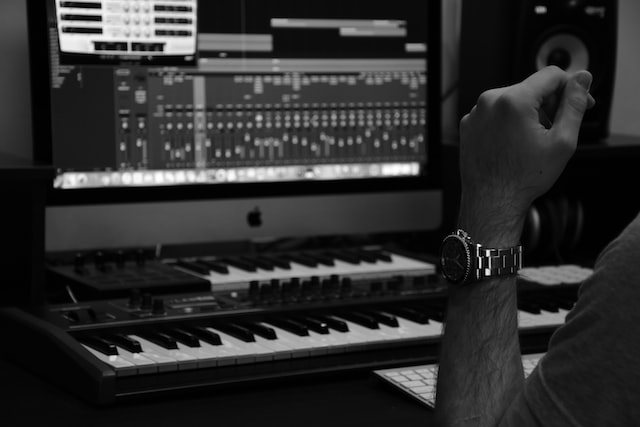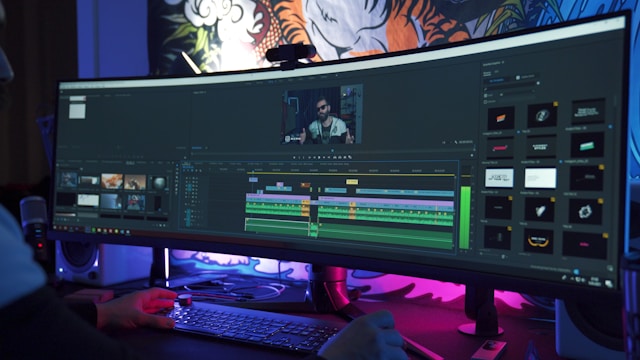A BMI music license offers your business the legal authority to use copyrighted music for your business. Ignoring this law, or using unauthorized music without proper licensing, can put your establishment at risk of thousands of dollars in fines and legal action from PROs like BMI. It is important to note, ASCAP and BMI account for about 90% of the music licensing market.
Copyright
The BMI music licensing is the most important license you’ll need if you want to play music publicly legally. This includes radio stations, bars that play live music regularly, restaurants, music festivals, and any other establishment that uses music. Copyright protects the rights of authors, artists, musicians, and other people to their intellectual property, defined as the work they create. This work can include various things, such as a song or other musical composition, an article, literary work, audiovisual work (such as a movie), and even a website or blog. To qualify for copyright protection, a work must meet certain minimal standards of originality and creativity. These requirements vary by country and court but are generally low and require some degree of independent creation.
One way that copyright law protects the creators of works is through the “idea-expression divide.” This divide says that copyright is for ideas and not expressions. For example, if you write a song about an elephant and then tell everyone that it’s the greatest animal in the world, you’ve violated copyright.
Performing Rights
If you’re running a business that uses music, you’ll probably need to license it through one of the major performing rights organizations. These are ASCAP and BMI, which look after something the industry calls “performance rights.” Performance rights refer to a right that allows musicians to make money from the plays they receive on their recordings. This means that if someone performs a song at a pub or restaurant, they must pay a royalty to the songwriter and publisher of the original work. This is why it’s crucial to understand how these organizations operate. It will ensure that your business is covered and that the artists you want to support are fairly paid for their work. These organizations are non-profit entities that operate under U.S. Department of Justice antitrust consent decrees, which prohibit them from charging free market competitive rates for their licenses. The consent decrees are subject to review and amendment periodically. The music licensing world has changed a lot since ASCAP and BMI first agreed to these consent decrees in 1941, largely due to technological advances and changes in how Americans consume and enjoy music. Despite these changes, the DOJ still requires that ASCAP and BMI monitor their consent decrees and modify them as necessary to meet the marketplace’s needs.
Licensing Fees
The licensing fees associated with the BMI music license are a key consideration for business owners who want to play music. This can be a significant expense, but it is necessary to avoid fines reaching $150,000 for unauthorized playback of copyrighted music.
A BMI license is required for establishments such as bars, restaurants, and even public spaces that host live music regularly. This includes radio stations, gyms, salons, and other businesses that regularly play music to attract customers. BMI is a performing rights organization (PRO), which means that it represents songwriters and publishers of different music genres. It is one of the largest PROs in the world. However, it is essential to note that BMI does not represent all songwriters and artists. If you plan to play songs from outside their catalog, you will need to obtain licenses from other PROs. This can be a daunting task, but it is possible to find a solution. Luckily, there are business music providers that allow you to play curated playlists without worrying about which PRO manages the song.
Getting Started
If you plan to play music at your bar or restaurant, you need to understand the ins and outs of performing rights organizations (PROs). These PROs collect license fees from businesses for songwriters, composers, and publishers who use their music. These fees are then distributed to songwriters, composers and publishers as royalties. The two largest PROs in the U.S. are ASCAP and BMI. Both have different benefits and fees, and it is up to you to decide which is the right fit for your business. ASCAP has a $50 registration fee and takes about six and a half months to pay songwriters after their songs are played. BMI is free to join and pays songwriters five and a half months after their songs are played.
Both PROs have a wide range of licenses covering the entire spectrum of music usage. Rates vary according to the amount of music, the number of days a week you host live music and whether you are using a jukebox or charging admission. Depending on your specific needs, you may also need a license from GMR and SESAC. These are smaller than ASCAP and BMI, but each covers a wide variety of music. ASCAP and BMI offer several benefits to their members, including discounts on live touring-related equipment and educational programs. They also allow you to register your performances online and avoid paying a recurring monthly fee.




